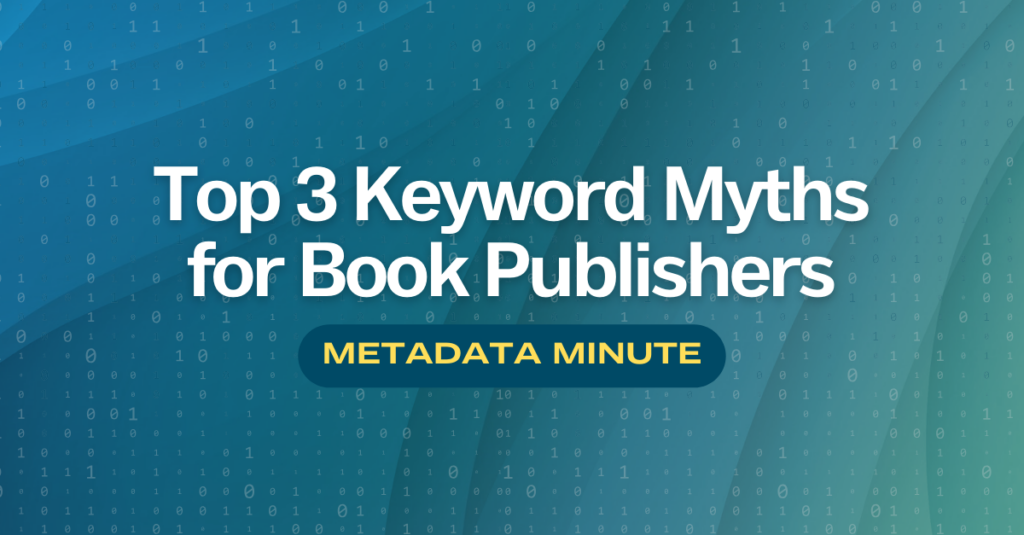
Metadata Minute (Issue #9): Top 3 Keyword Myths for Book Publishers
The Metadata Minute is your monthly guide to boosting book sales and visibility by mastering metadata elements! Whether you’re an author, publisher, marketer, or industry enthusiast, “Metadata Minute” has something to offer everyone.
🔍What to expect:
- Insights from industry experts
- Tips and techniques to perfect your metadata for backlist & frontlist titles
- The latest industry trends in metadata practices, ensuring you’re always one step ahead
- Case studies proving the power of metadata transformations
Subscribe today to receive the “Metadata Minute” newsletter on the last Monday of each month. If you missed it, they will also be included in our monthly Firebrand Newsletter, sent straight to your inbox.
Time to debunk some common myths surrounding the use of keywords in the hopes of improving your current metadata. In this issue of Metadata Minute, we’ll shed some light on nuances that could significantly impact your book’s visibility and discoverability on digital platforms.
Myth #1: Amazon only imports 210 keyword characters
Calling back to our very first Metadata Minute, the Key to Keywords, there are some common misconceptions when it comes to how many keywords Amazon will index for search.
Amazon states that they only index the first 210 characters (not including spaces and semicolons). While that remains true, our research indicates that Amazon may index beyond their claimed 210. Even if they only officially index the first 210 characters, Amazon will actually accept up to 2,000 characters.
Our recommendation is to provide as many keywords as possible! They can only help you.
Myth #2: Book descriptions are indexed as keywords
Contrary to what publishers might hope, most digital marketplace platforms do NOT scan your book descriptions for extra keywords. Unfortunately, the algorithms are not usually designed to pull content from your book descriptions.
This means that it is usually helpful to include important words and phrases from your book description in your keywords, as well. Don’t expect the descriptive copy to help with search anywhere but Google.
Myth #3: You can use the subtitle field for extra keywords
Using the title or subtitle fields for keyword content is known as “Keyword Stuffing” and causes problems for many other parts of the industry, including the Library of Congress, Books in Print catalogs, libraries, and vendor databases.
The industry-standard best practice is to only include the official title and subtitle in those metadata fields, and to leave the keywords out. Not doing so can result in confusion and inconsistency down the line, as metadata recipients may change the title and/or subtitle field without the publisher’s knowledge or consent. This is true even if you only try to send the keyword-stuffed subtitle to Amazon, as other sources may consider the Amazon listing to be the most accurate data.
For more information on these best practices, see the Book Industry Study Group’s “Misuse of the title and subtitle fields” article.
There you have it! We hope these tips helped dispel some of the myths you may have about the use of keywords in the publishing industry.
For more metadata tips, subscribe to the monthly Metadata Minute and get LinkedIn notifications for newly published issues! To master your understanding of metadata for book publishing, consider taking Joshua’s Learning Metadata for Book Publishing virtual class.
